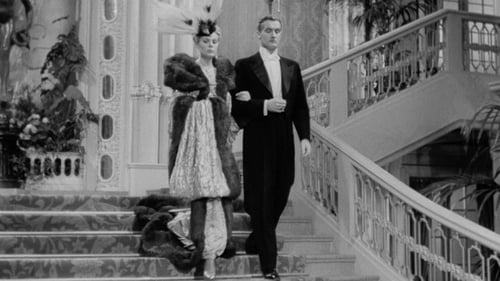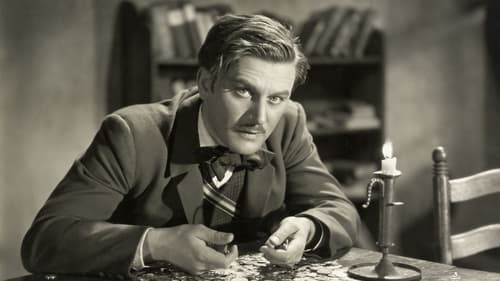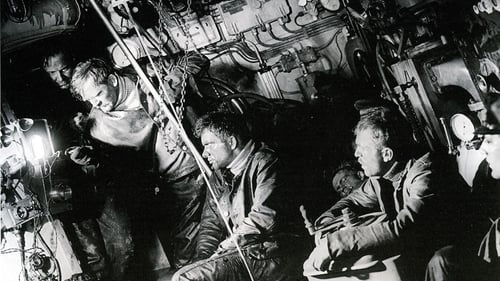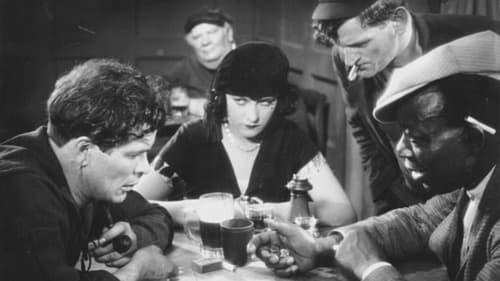Fritz Genschow
Birth : 1905-05-15, Berlin, Germany
Death : 1977-06-21

Screenplay
Schneeweißchen and Rosenrot, two very sweet girls give shelter to a bear in distress one night. In the spring the bear wanders off again, but rips his fur on the door on the way out, which makes the girls notice a shimmer of gold shining through. Later, the girls help out a dwarf in the woods, who has got his beard caught in first a fallen tree, then his fishing gear, and the third time they rescue him from a bird of prey.

König Kratos

Writer

Director

Writer

Director

Director

Director

Screenplay

Director

A beautiful princess is betrothed to the prince of a neighboring kingdom, and when the time comes, she sets out with a small entourage to wed him. She is given a magic handkerchief by her mother, which she is told will protect her, along with a talking horse. Before she departs, her mother entrusts her to the care of her chambermaid, who promises to look after her. Unknown to the queen, however is the fact that the chambermaid desires the prince for herself, and has been concocting an evil plan to accomplish her ends. With the reluctant help of two bumbling servants, the chambermaid deprives the princess of the magic handkerchief, and tricks her into changing places with her, swearing her to secrecy. Once they arrive at the palace, the maid is taken for the princess, who becomes a goose girl.

Director
A beautiful princess is betrothed to the prince of a neighboring kingdom, and when the time comes, she sets out with a small entourage to wed him. She is given a magic handkerchief by her mother, which she is told will protect her, along with a talking horse. Before she departs, her mother entrusts her to the care of her chambermaid, who promises to look after her. Unknown to the queen, however is the fact that the chambermaid desires the prince for herself, and has been concocting an evil plan to accomplish her ends. With the reluctant help of two bumbling servants, the chambermaid deprives the princess of the magic handkerchief, and tricks her into changing places with her, swearing her to secrecy. Once they arrive at the palace, the maid is taken for the princess, who becomes a goose girl.

Writer

Director

Drechslermeister
A tailor sends his sons away. They each learn a trade and receive a special gift from their teacher.

Writer
A tailor sends his sons away. They each learn a trade and receive a special gift from their teacher.

Director
A tailor sends his sons away. They each learn a trade and receive a special gift from their teacher.

The King
German-made adaption of the famed Grimm Brothers fairy tale.

Director
German-made adaption of the famed Grimm Brothers fairy tale.

Director
"Cinderella" is a delightful musical version of the classic fairytale of a good-natured girl and her wicked stepmother. When the local prince holds a ball for all the women in the land so he can find a wife, Cinderella is forbidden to go. With the aid of her good fairy godmother, however, Cinderella attends the ball and wins the prince's heart.

Writer

Tobi

Director

Writer
Der Struwwelpeter is a popular German children's book. It comprises of ten illustrated and rhymed stories, mostly about children. Each has a clear moral that demonstrates the disastrous consequences of misbehavior in an exaggerated way. Writer/director Fritz Genschow adapted Hoffmann's book to the big screen. He made a career doing such films, he had done Hansel and Gretel and would go on to adapt Cinderella, Sleeping Beauty and other family films. Der Struwwelpeter, however, is weirder and darker than the Grimms' tales. They are heavy morality lessons in which children are burned to death, starved to death, or have their thumbs cut off. In Hoffmann's world the punishment usually far outweighs the crime. Genschow provided a happy ending: through the wonders of reverse action children are brought back from their fiery deaths, their thumbs are reattached, and their misdeeds undone through the power of St. Nicholas and some sort of Christmas miracle. (via forcesofgeek.com)

Director
Der Struwwelpeter is a popular German children's book. It comprises of ten illustrated and rhymed stories, mostly about children. Each has a clear moral that demonstrates the disastrous consequences of misbehavior in an exaggerated way. Writer/director Fritz Genschow adapted Hoffmann's book to the big screen. He made a career doing such films, he had done Hansel and Gretel and would go on to adapt Cinderella, Sleeping Beauty and other family films. Der Struwwelpeter, however, is weirder and darker than the Grimms' tales. They are heavy morality lessons in which children are burned to death, starved to death, or have their thumbs cut off. In Hoffmann's world the punishment usually far outweighs the crime. Genschow provided a happy ending: through the wonders of reverse action children are brought back from their fiery deaths, their thumbs are reattached, and their misdeeds undone through the power of St. Nicholas and some sort of Christmas miracle. (via forcesofgeek.com)

Producer

Director

Director
A Brothers Grimm fairy tale involving siblings finding a gingerbread house in the middle of the forest owned by an evil witch who captures them and by fattening them, intends to have them for her meal.

Jäger

Writer

Director

This little-known German film retells the true story of the British ocean liner that met a tragic fate. Ernst Fritz Fürbringer plays the president of the White Star Line, who unwisely pressed the Titanic's captain (Otto Wernicke) to make the swiftest possible crossing to New York.

Großknecht Karl Lührmann

The young Schiller, whose heart and soul are writing and poetry, is forced into the military academy (the pride and joy of the Duke of Württemberg). Schiller is disgusted by the everyday routine of the military, always back and forth between breeding and drills. Conversation, conflict or even critique are discouraged – the oppression insufferable for the young rebel. Disgusted by the brutality, he writes his drama "The Bandit", which he would later publish anonymously. But following a frank conversation with the Duke, Schiller is dishonored and must leave the land.

Alfred Schulze

Dr. Üdings

Kohlhammer
A soldier thinks about leaving the army for a woman. His friends try to stop him.

Gustav Pasemann

Kapitän Holster
Before the First World War, Dr. Hans Stockmann had a practice in a small town. His powerhungry brother is the mayor of Bad Trimburg, which has developed into a respectable resort. Dr. Stockmann is called in to become the town’s chief physician. He considers the sanitary conditions to be intolerable and insists on a clean-up. His ambitious brother and all those who, till now, have profited well from the corner cutting, are, of course, against that for financial reasons. The doctor is condemned from all sides and the conflict escalates.

Gustav Hase, Bahnhofsvorsteher

Lionel Clark
Since her father died, rich and carefree Jacqueline Topelius makes magazine covers and causes social gossip with her flirtatious adventures around Europe, leaving a string of admirers behind without much concern. Her sister June, living in Paris, is all the contrary but they love each other just the same. Everything changes when Jacqueline meets Dr. Michael Thomas, who rejects her at first. Now she must choose, and also face the consequences her past life may have on their future together.

Rolf Eltze
Film by Carl Boese.

Writer

Onkel Jäger

Director

Hans Lünk - Straßenmusikant

Student Dahl
Prague in the 1860s: Balduin is a popular, handsome student, the best fencer in town, in amicable rivalry with his friend Dahl for the affections of Lydia, the innkeeper's niece. While the students are celebrating Lydia's birthday, the opera singer Julia Stella arrives at the inn - and Balduin's life begins to unravel. He is immediately infatuated with the glamorous singer - but she is already kept by an admirer, the wealthy and foppish Baron Waldis. How can a poor student hope to compete? The mysterious Dr. Carpis, who also has ties to Julia and is jealous of the Baron, intervenes. But the price will be higher than Balduin can ever imagine. He risks his sanity and his life - perhaps his very soul - haunted by his own reflection.

Fritz Schmitz
Fritz Schmitz advertises the sea journeys of Mr. Hein Kluge using this melody. Fritz is Mr. Winkler's nephew and aside from attracting participants in these sea journeys, he's trying to get his uncle to invest 10,000 Reichsmark in Mr. Kluge's operation. And indeed, Mr. Winkler promises to make the investment, if the sea journey proves to be what he's expecting. He's hoping, by the way, to get to know "Emma", with whom he's been corresponding for quite a while now, because she put an ad out saying she wants a husband. And wouldn't you know it: without having met her except by mail, he's fallen for her! Another big condition is that Fritz not sell Mrs. Muller a ticket for this trip. On the steps, Fritz gets to know a young girl, with whom he falls in love at first sight and, without knowing her name, invites her to join the tour. And wouldn't you know it: this woman is Frau Muller's daughter. Can you guess where this is going?

Hauptmann
France in the 15th Century: The country is marked by the wars with England and internal power struggles. King Charles sees himself powerless against the state. As emerges from the people suddenly a young woman named Johanna, who claimed that the Archangel Gabriel to be appointed, to save France. First of all doubt the king in their words, but he remembers that the people through this "help of God" is gaining new courage. With the slogan "God and the Virgin!" pulls the revivified victorious army into battle against the English-Burgundian alliance. After Johanna King Charles is crowned at Reims, there breaks the plague over the country in. Now Johanna all the blame on the disaster: God would punish believe in the country for that a heretic; if Johanna were actual a holy, she would deal also with the plague. The waning faith weakens France, England is again on the rise. But Johanna is executed as a witch. Only years later annulled the verdict of the Holy and Johanna explained.

Leutnant v. Naugaard
Film by Randolf and Loos.

Le sibérien

Oberleutnant 'Phipps' Fredericks
Released three days after Adolf Hitler became Reichskanzler, it was the first film to have its screening in Nazi Germany. It became a symbol of the new times touted by the Nazi regime. The title (literally "morning-red") is the German term for the reddish coloring of the east sky about a half hour before the sunrise. On patrol Captain Liers and his submarine crew sink an important British ship, but while returning to harbour, they're lured into a trap by a British vessel disguised as a neutral Danish one. They sink it after it attacks them without warning, but while they prepare to rescue survivors, a British destroyer sinks the sub. On the sea bed 60 feet down, with all but the bridge flooded, the 10 surviving crew have only 8 rescue devices. Liers orders the crew to use them, but they disobey - either all escape or nobody does.

Fritz

A pre-Depression slice of proletarian life from Weimar Germany, Harbour Drift is unusually interesting for its indifferent pessimism, rejecting even the minor rays of hope which permeate the other low-life ‘street films’ of the period. A sordid tale of poverty and greed set within a quayside milieu of crime and prostitution, the narrative centres on the quest for a sparkling pearl necklace stolen by a beggar under the gaze of a prostitute, who persuades her unemployed friend to steal it back, with tragic consequences. The story unfolds in flashback, without irony or a hint of redemption: life simply goes on. The film is remarkable for the innovative camerawork of Friedl Behn-Grund, which manipulates light and shadow to create a nightmarish atmosphere of fear and premonition.


















